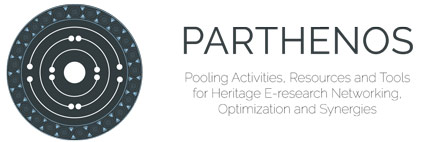14 July 2015
Innovating research in the humanities and cultural heritage sectors – PARTHENOS begins its work
The PARTHENOS project, which involves King's academics from the Department of Digital Humanities, has been awarded €12 million over four years by the EU


The PARTHENOS project, which involves academic staff from the Department of Digital Humanities, has been awarded €12 million over four years by the EU to support and build on the efforts of a range of EU projects in the domain of cultural heritage, digital humanities, linguistics, history and archaeology.
The consortium is led by PIN Scrl - Educational and Scientific Services for the University of Florence in Italy, and is composed of 15 partners from 9 European countries, as well as two major European Research Infrastructures, DARIAH and CLARIN. The official kick-off of this international project took place on 3 July 2015 in the Salone dei Dugento, one of the historic halls of the iconic Palazzo Vecchio in Florence.
The goal of PARTHENOS is to create a common ecosystem for research in the humanities and cultural heritage by facilitating the use of innovative digital technologies, tools and methods in these sectors. This will involve technical development, standardisation and policy making, as well as engagement with research communities across Europe, with the aim of identifying and meeting the current and future needs of these researchers.
While part of the project addresses consolidation and standardisation, the King’s team will in particular be responsible for looking ahead at the potential evolution of digitally facilitated research in the humanities and cultural heritage sectors over the medium term (5-10 years).
“We need to identify and anticipate trends in digital methods and approaches within research communities, and prepare strategies to ensure that their potential is fulfilled”, says Digital Humanities Senior Lecturer Dr Mark Hedges, who is the King’s PI on the project.
For more information please visit the PARTHENOS website.

